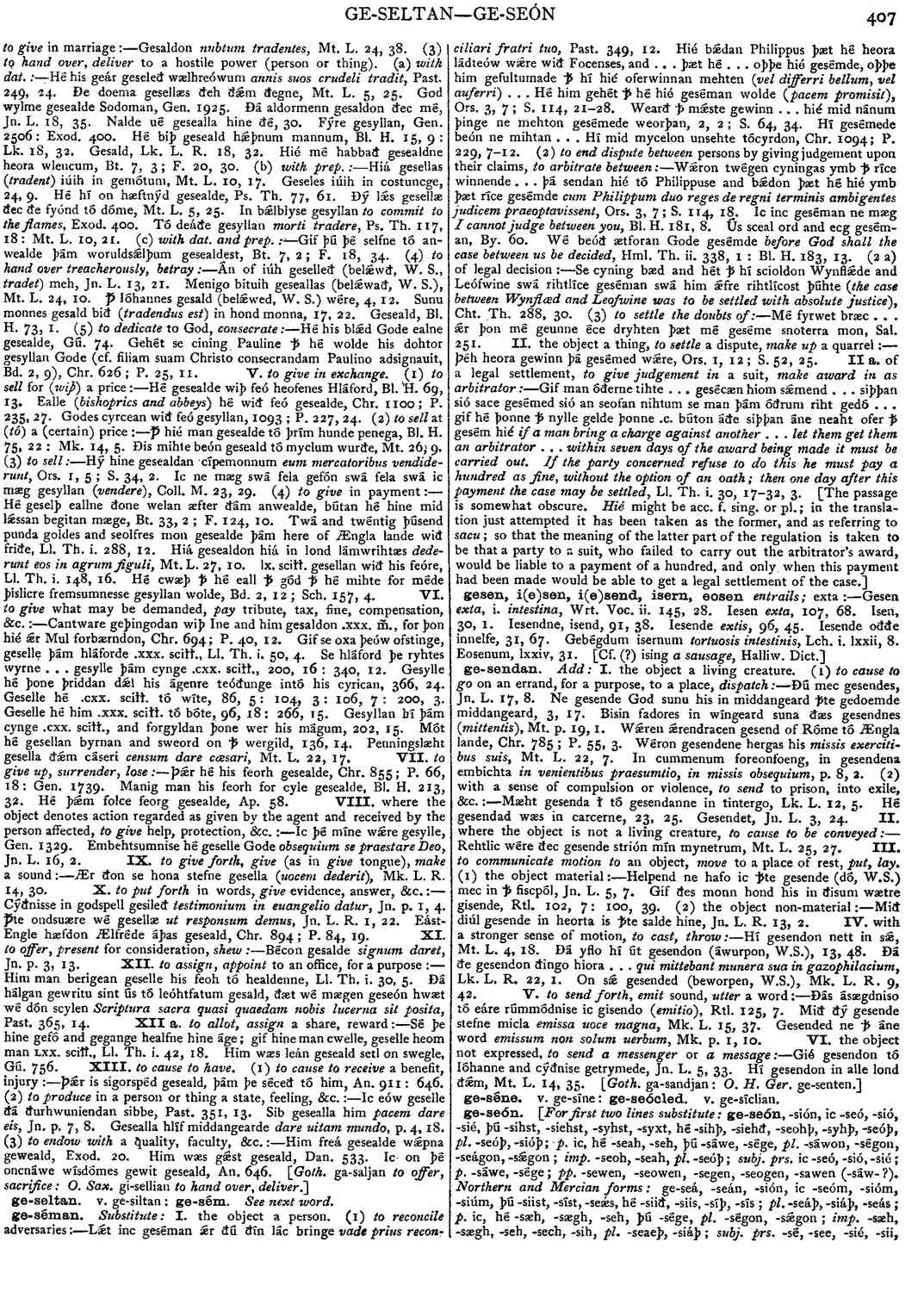ge-sendan
-
Ðú mec gesendes,
- Jn. L. 17, 8.
-
Ne gesende God sunu his in middangeard ꝥte gedoemde middangeard,
- 3, 17.
-
Bisin fadores in wíngeard suna ðæs gesendnes
(mittentis)
,- Mt. p. 19, I.
-
Wǽren ǽrendracen gesend of Róme tó Ængla lande
- , Chr. 785 ; P. 55, 3.
-
Wéron gesendene hergas his
missis exercitibus suis,
- Mt. L. 22, 7.
-
In cummenum foreonfoeng, in gesendena embichta
in venientibus praesumtio, in missis obsequium, p.
- 8, 2.
-
Mæht gesenda ł tó gesendanne in tintergo,
Lk. L.
- 12, 5.
-
Hé gesendad wæs in carcerne,
- 23, 25.
-
Gesendet,
Jn. L.
- 3, 24.
-
Rehtlic wére ðec gesende strión mín mynetrum,
Mt. L.
- 25, 27.
-
Helpend ne hafo ic ꝥte gesende (dó,
- W.S.)
- Gif ðes monn bond his in ðisum wætre gisende. Rtl. 102, 7: 100, 39.
-
Mið diúl gesende in heorta is ꝥte salde hine,
- Jn. L. R. 13, 2.
-
Hí gesendon nett in sǽ,
- Mt. L. 4, 18.
-
Ðá yflo hí út gesendon (áwurpon,
- W.S.), 13, 48.
-
Ðá ðe gesendon ðingo hiora . . .
qui mittebant munera sua in gazophilacium,
- Lk. L. R. 22, I. On sǽ gesended (beworpen, W.S.), Mk. L. R. 9, 42.
-
Ðás ásægdniso tó eáre rúmmódnise ic gisendo (
emitio
).- Rtl. 125, 7.
-
Mið ðý gesende stefne micla
emissa uoce magna,
- Mk. L. 15, 37.
-
Gesended ne ꝥ áne word
emissum non solum uerbum,
- Mk. p. I. 10.
-
Gié gesendon tó Ióhanne and cýðnise getrymede,
- Jn. L. 5, 33.
-
Hí gesendon in alle lond ðǽm,
- Mt. L. 14, 35.
Bosworth, Joseph. “ge-sendan.” In An Anglo-Saxon Dictionary Online, edited by Thomas Northcote Toller, Christ Sean, and Ondřej Tichy. Prague: Faculty of Arts, Charles University, 2014. https://bosworthtoller.com/49628.
Checked: 0